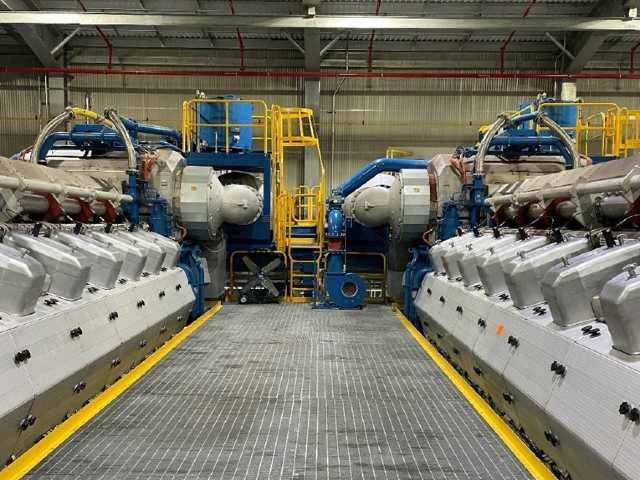 Inside the A.J. Mihm natural gas-fired generating station. (CNW Group/Certarus Ltd.)
Inside the A.J. Mihm natural gas-fired generating station. (CNW Group/Certarus Ltd.)
Utility company WEC Energy Group and Electric Power Research Institute (EPRI) were among the partners to announce the completion of a hydrogen blending pilot project at a reciprocating engine plant in Michigan.
During two weeks in October, Wisconsin-based WEC said hydrogen and natural gas were tested in blends up to 25/75 percent by volume to power an 18MW Wärtsilä reciprocating engine at the A.J. Mihm plant near Pelkie, Michigan. The plant serves customers of Upper Michigan Energy Resources, a WEC Energy Group subsidiary.
Partners said the project is the first hydrogen power generation test of a utility-scale, grid-connected reciprocating engine generator in the world.
The reciprocating engine was continually monitored during the test to measure performance, output and emissions data. This particular unit began service in 2019. EPRI plans to release an analysis of the pilot in early 2023.
Wärtsilä, Burns and McDonnell and Certarus also assisted with the project.
Reciprocating engines convert pressure into rotating motion using pistons, while gas or combustion turbines use the pressure from the exploding fuel to turn a turbine.
Each of Wärtsilä’s three engines at A.J. Mihm has its own 65-foot stack and are cooled by 24 radiator fans that reject heat from a closed-loop circulating antifreeze (coolant) system.
Fueled with natural gas, each engine is shaft-coupled to an electric generator. The units are housed inside a building with an exterior resembling a warehouse. The exhaust system is located outside the building and includes silencers, air quality control systems and stacks.
The plant uses selective catalytic reduction with urea injection for control of nitrogen oxides and an oxidation catalyst for control of carbon monoxide, volatile organic compounds and hazardous air pollutants.
